Justice begins with the fair creation – or procreation – of power relations, but those at the top of our political systems have historically refused to cede (or “constitute”) their power and influence into future generations.
The Lie
Older generations lied to themselves and others by treating the most interpersonal act – having kids – as a matter personal and private to the parents (often just the father), isolating those parents in the decision-making process from the impact their decision would have on the children born, on our communities and on our world. Families would have no obligation to others’ children, rich or poor. If the state sought to protect children, it would have to wait for them to be harmed.
That isolationism, in family planning, prevented the social contract – which includes the limitation of one person’s power over another, including would-be parents’ power over future children, rich kids’ power into their adulthood over poor kids, humans’ power to overrun the nonhuman world and create a climate crisis where freedom from others’ influence became impossible – from ever forming.
But the act of creating others is more other-determining – for the children born and the societies they will comprise – than self-determining for the parents. The move of older generations, to ignore the impact we have on others, evaded collective obligations to invest in children and preserved and expanded existing power structures via population growth. What appeared to be social justice movements – for equity and the environment – were always being undone upstream by family policies that would eventually bring us to the place of` massive inequality in failing ecosystems in which we live today.
Elites and those they controlled, throughout the Twentieth Century, did not want to pay their fair share to give all kids a fair start in life, a healthy environment, and a meaningful role in their democracies. Instead, they pretended that fortune, or some magical god, simply made it so that some kids were born poor, and others rich. They assumed nature, as a resource, was infinite and growth infinitely sustainable. Elites gave their own children a massive head start in life, contravening basic principles of democracy like the requirement that there be equal opportunities for all.
They made money with policies that prioritized population growth over investing in women in children, turning democracies into massive economies of scale filled with consumers rather than influential citizens, and functional constitutional conventions. Lost in a sea of others elites could exploit, the average person became voiceless, with the choice of what to buy but not to help steer the polity around them. Elites made their wealth by simply evading paying the costs necessary to maintain nations of free people – people free from things like the anthropocentric climate crisis. And they have historically been assisted by media and unethical journalists, as they are today with constant stories of “baby busts” and underpopulation, who shill for their advertisers and the need for more and more consumers.
That is the lie – that the generation of our societies, the base “we” from which all our language proceeds – should be determined by subjective autonomy rather than values and objective justice. That lie preserved fundamentally exploitative power structures and drove the crises causing immense suffering today, and the suffering – of the most vulnerable – that will occur in the future. And those who pushed and are pushing the lie are fundamentally responsible for the outcomes.

They also sought to evade an obvious truth: The obligations we have to future generations come first, and override other obligations, like property rights. Why? Governments derive from people who derive from their creation, so a just creation norm precedes other rules. That norm represents the only opportunity to ensure consensual power relations, from the moment those relations are created. Maintaining an optimal world population range, in terms of the creation and continuation of power relations between people, and between people and their ecologies, is always the first question of ethics because we are before we do. Existential justice precedes and overrides other forms, like property allocation.
We always have to ensure justice, in creation, first.
But instead, under the isolation or privacy paradigm men, and especially rich ones, kept control of their castles. And governments were more than happy to go along with the lie and the subversion of human rights – backed by the excuse of the cold war – as long as they received their cut in taxes, and otherwise benefitted from the growth.
That lie, the idea that what is interpersonal is really personal, fundamentally created the key crises – climate and inequity – we face today by driving the anthropocene over a more ecocentric world, and ensuring the massive inequality we now inherit at birth. It was assisted by religion – if we are made by gods rather than men, then the act is not really interpersonal, or subject to the demands of justice.
Fact: Had world leaders adopted just and sustainable family planning policies in the middle of the Twentieth Century the world would not be facing the crises it is today. Whatever good politicians, wealthy philanthropists, or the nonprofits philanthropists usually control claim to have done, the underlying family paradigm they accepted and benefitted from over the past several decades on balance did more harm – especially given the climate crisis and what it will do to future generations. The lie that hid the fundament of justice, and the alignment of values, will cause immeasurable harm. The lie was furthered by anthropocentric environmentalists, the vast majority of environmentalists, who never bothered to actually define our species with the simple values that free us, like nature.
Under this paradigm the wealthy and powerful, both public and private, benefitted from a family system of growth and inequity that harmed others – including depriving generations of the freedom democracy – the kind you actually participate in – required. As will be explained below, taking back that power and freedom is the height of justice.
This is not about population. It’s about people and fairness. It’s not about a simple thing like numbers, but about a dynamic matrix of relations (four at least) and values that are inextricable from one another (e.g., birth inequity provided cheap labor, which along with large families, helped drive industrialization and its impacts on people and the world). Moving to a child-centric base norm is not just about emissions; it involves making resilient and cooperative (democratic) the people who will inhabit the ecological future.
We should choose the former, and arc down.
People are not numbers. They are entities that exert power over one another. We see this when we 1) understand power as any form of human influence (emissions, bad parenting, using language to exclude others, etc.) rather than focusing on the coercive (or official) power of the state, and 2) think about people in terms of their whole life span, including their earliest and most formative years. This is not John Rawls’ intergenerational justice – it’s about creating relatively self-determining people, as discussed below. If there is one condition for rules it is that they be fair, and the rule that creates us is no exception.
If you want to see the lies, join our Tell the Truth campaign and simply urge people and organizations to show you what they were doing to give kids a fair start, ecologically and socially, in the past and how they plan to do it today. Ask them to show the impacts of their family policies – past and present – on things like the climate crisis, inequity, and participatory democracy. Ask them to explain how we can have a just society without fairness, right from the start.

The truth is that no legal system is legitimate and obligatory unless it is comprised of consenting subjects who matter or have an influential role politically, and who thus act as though their capacity for self-determination is inverse to – and balanced against – population growth (which is fundamentally the addition of other sovereign or relatively self-determining people) relative to the absence of human power, or nature. That is the base conception of a social contract – the device that fundamentally makes freedom work. Freedom is the capacity to consent to the influence of others, and as a default, we should not submit to those we do not trust. And with massive power differentials and lack of any common core that proceed from our creation, trust is unreachable.
This is a condition for legitimacy prior to the development of downstream systems – like political representation, markets, or institutions. If power derives from people, is it more accurate to say that we are constituted into a system at some point in the past, through no role of our own, or actively part of a system of constituting physical democracies by taking part in a child-centric system that physically empowers people? Power derives from people who derive from their creation, and if it takes a village to raise a child it takes a village to plan for a child. While things like human rights, representative government, and checks and balances make democracy work, the first and most important device involves the rearing and development of children into people capable of democracy. The way we plan families is blocking this.
It’s hard to make sense of any political or legal system, positive, natural, formal, interpretive or otherwise, without accounting for the creation and development of the people from whom law derives and to whom it should feel obligatory. While we are familiar with forms of social organization like states, corporations, families, and communities, resolving the lie blocking procreative justice opens up the possibility of undiscovered countries of truly consensual obligation – islands of democracy in a sea of nature.
The lie regarding what is personal and interpersonal ensured growth that crippled this process of ensuring consensual governance. The quadrupling of populations in the Twentieth Century fundamentally replaced town halls with shopping malls by converting the possibility of fewer, well-developed citizens whose voices would matter into a mass of disconnected consumers with little influence over their governments, thus disempowering the average person. It ensured the endless greed and self-interest we see today, something Greta Thunberg has noticed, because it robbed people of secure and fulfilling communities that ground people and obviate the need for such things.
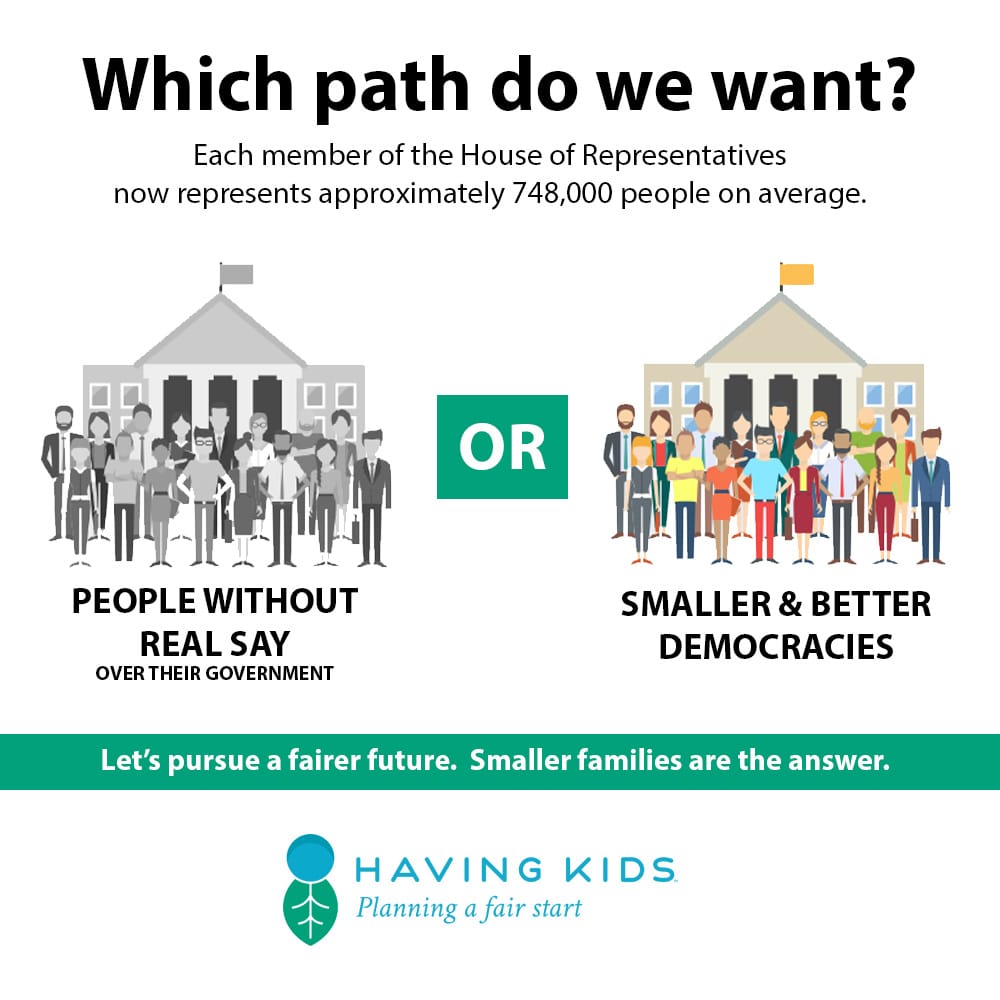
The Truth and Resolution
The most just and effective solution to the lie and its horrific impacts is to move the wealth and power that was made through growth – both public and private wealth and power – forward into future generations rather than continue to move it up to the top of the current structure, or what Nobel Laureate Steven Chu called the Ponzi scheme population pyramid.
Just follow where the money that should have gone into investing in future children went by our ignoring their needs and opting for growth.
The solution means taking and redistributing wealth, as the first and overriding human right, to incentivize family planning that ensures 1) fair starts and equal opportunities in life for all kids, 2) parental readiness instead of unsustainable population growth, and 3) more sustainable families for all that create truly bottom-up and inclusive democracies.
Throughout the past century or so there has been more than enough wealth available to avoid the ecological and social crises we face today – had it been used to fund incentivized/entitlement-based family planning systems. As multiple peer-reviewed analyses show. taking that wealth now – by all means effective – as the first and overriding human right is the most just and effective way to solve the crises.
Humane Families Becoming the Norm
Dozens of groups are already beginning to move in the direction of just and sustainable families – and it looks like this. The kind of freedom these groups are building is true freedom – e.g., not the fake “I’m alone in the world” freedom to choose to wear or not wear a mask in the middle of a raging pandemic, but the intricate freedom represented by a fundamental state of affairs where any pandemics would have been substantially avoided or mitigated. This move – just and sustainable family planning – has the biggest long run impact by far. It also solves the dilemma at the heart of democracy, aligning 1) just or right outcomes with 2) popularity, by investing more in and developing each person. Through development we come together around truth. There are legitimate economies without democracies preceding them, which means our family policies must create citizens and not consumers. We can ensure that – the first condition of justice – by all means effective.
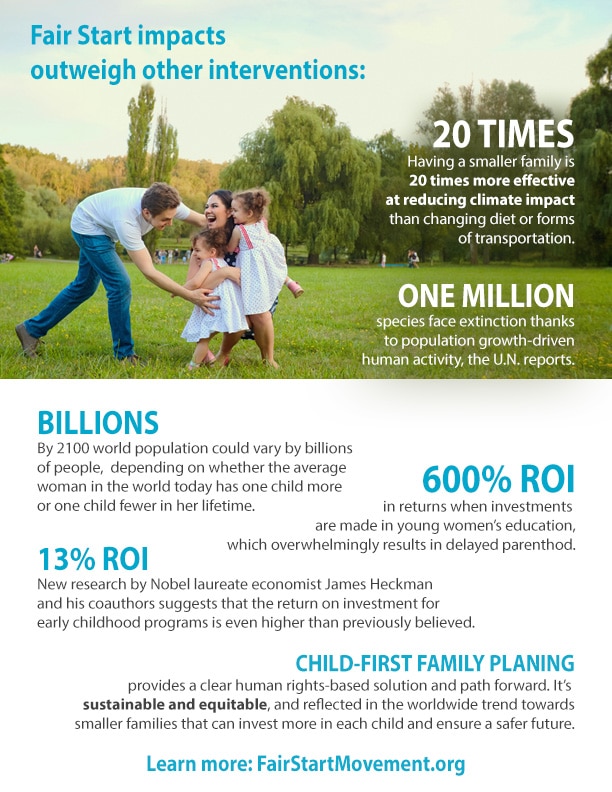
The facts :
- Current family planning model ensure horrific child abuse by not ensuring parental readiness, with hundreds of children tortured and killed by their parents each year in the United States. These children were never free.
- Current family planning models replicate wealth disparities that are inherited from colonization and slavery, including a massive gap between white and black children. These disparities put people under one another, detracting from freedom.
- Current family planning models are totally disconnected from democracy, hiding the way poor family planning dilutes the role we should play in our democracies to meaninglessness and opening the door to democratic decline. We cannot be free in democracies where our votes do not matter.
- Current family planning models are the fundamental cause of the climate and every other ecological crises, with population growth contributing exponentially – daily – to the crises. The climate and other crises put us under the power of others, as the freedom of nature recedes. We can assess who benefitted and who suffered (and will suffer) from our historic family planning policies and redistribute to make things right.
Don’t Get Scammed: Testing for Freedom
There is a simple test for whether someone is part of this fix, and really accounting for freedom and justice, that involves looking at their language (much the way we look for binary gender mistakes in pronouns today). How? Ask anyone making claims about policies to define the people – the fundamental social organization – at the base of their claims, e. g. “tell me about the justifiable group that is making and implementing the policy you are discussing, in terms of basic values like the welfare, equity, ecological conditions, and effective roles in their democracy, both now and in the future,” and “tell me how they are consenting to the influence of others.” Ask them to unpack their claims in light of the open multiplier they are using, and the impact of that multiplier on child welfare, equity, nature and participatory democracy. Do they even have an intention for fundamental justice? How do they assess market costs and benefits without the primary baseline of a functional constitutional convention – or democracy – from which to do so?
Most people will give answers that make it clear they never accounted for the actual people or these values – the values they will most certainly pursue in their own lives and that make us free and relatively self-determining. They will have simply planned to exploit the growth that comes from not having to think, the growth that created the crises. Ask them to do the numbers and admit the harm from the paradigm they accepted and likely benefitted from, the paradigm they planned to simply continue.
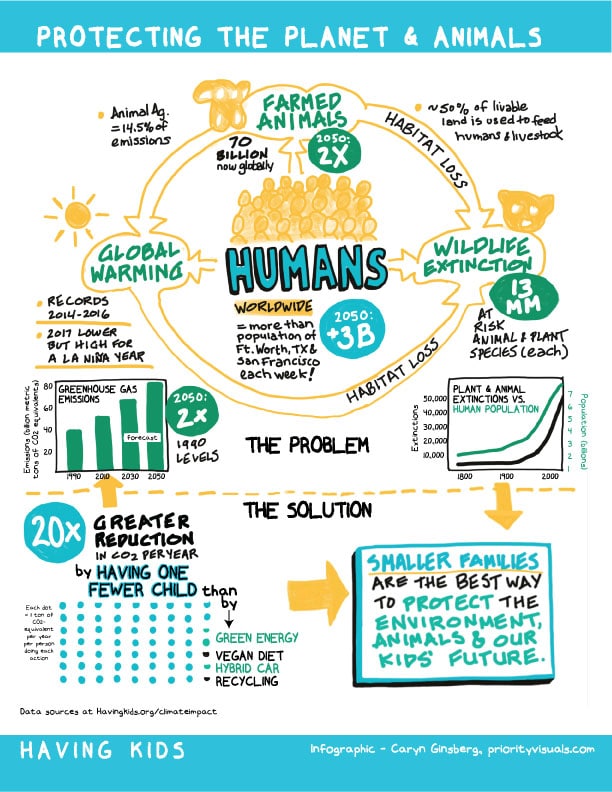
Do the people in question act as though population growth is inverse to one’s capacity for self-determination, relative to nature or a zero-power baseline? Groups of relatively self-determining people are bordered by the absence of human power (nature, or the absence of being determined by others, which makes consent to power possible), accept loss of pure self-determination as they grow in number, but seek to divide and create new groups to maintain the relative power of each individual. This is the fundamental equation of free and equal people, one test for which will be the presence of fluid – not fixed – political borders defined by people and not arbitrary lines.
This is not mere theory – this is what might be beginning to happen in places Catalan, against the will of autocrats like Donald Trump. This is what optimal world populations – using a base value of freedom – might begin to look like, and where people would matter politically rather than trying to matter by literally imitating figures in the advertising we were raised on as is the case in social media today. Free polities are formed through the rule that meets the basic test for all rules – one that is fair. And in the case of any truly first rule, it can’t be practical or even interpretive, but must be existential in nature. It must be a rule – God notwithstanding – about who we should be.
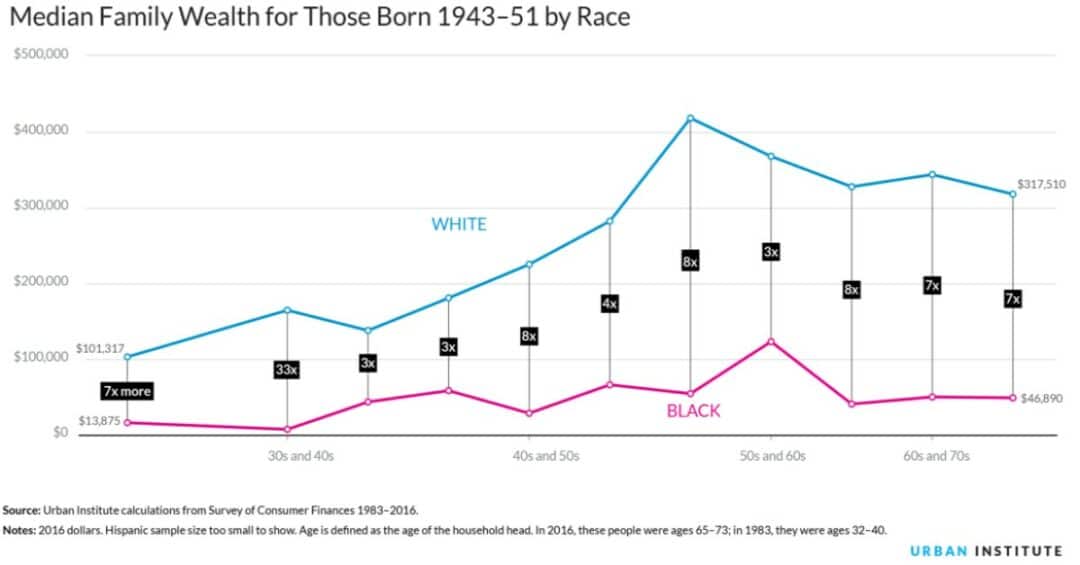
In other words, do the people making policy claims act as though people matter politically, and do they seek to empower the majority – future generations (which make the idea of population more normative than descriptive) – through family planning reforms that limit and decentralize (or reconstitute) the power each of us have over one another such that we reach qualitative optimal populations? If it takes a village to raise kids, it takes a village to plan for them – for the phase of entry into society, from their creation to their emancipation. If we want relatively autonomous families, where vulnerable entities like the poor, women, and children share in the autonomy, we have to plan for and create them as such and not pretend autonomy will magically appear.
As a practical matter, do the claimants support a discourse where every child’s right to an ecosocial Fair Start in life overrides property rights? To constitute – politically – is to transfer power in a way that ensures the capacity for relative self-determination. It’s about making power flow bottom up, rather than top down and based on coercion, as it does today. Are the claimants willing to make that transfer of power, a sort of “first tax” that pays for existential justice? If they are not, they are putting property and things over people, rejecting the relative self-determination of peoples, and are choosing to remain part of fundamentally unjust systems. In other words, are they part of – or opposed to – constituting just societies comprised of democracies where voices of the people are heard and matter? If not, the people in question are preconstitutional, or “precons.” They cannot account for any form of justice because they cannot account for how people – the majority – will fit into those forms. They cannot account for “constituting” or the physical limitation and decentralization of power, regardless of its form. To the extent they are intending parents they would be unwilling to empower their children and may not be ready to parent. In other words, hey are insufficiently other-regarding to constitute just societies.
Urge them to change course and help us liberate the majority of entities – those who will live in the future (both human and nonhuman) – by supporting our action before the UN Human Rights Council. We begin legitimacy by through the physical conditions that make social obligations genuinely reflective of the people subject to them.
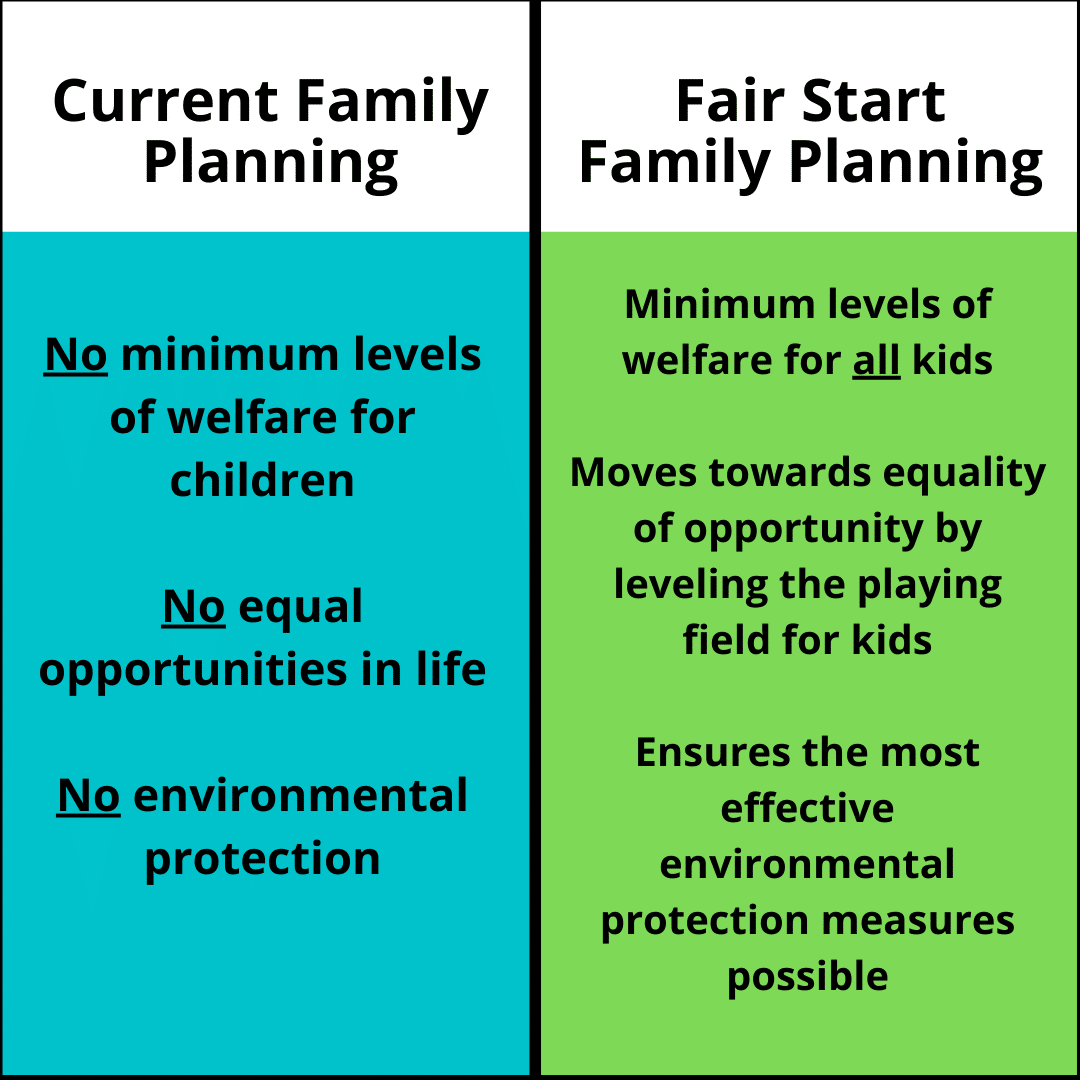
Take action:
We can use the values that free us to physically define our species. Click here for dozens of ways to take action to support true freedom for the majority, starting by engaging in the direct action discourse that puts people over property, and which helps us act against concentrations of wealth and power in ways the liberate and decolonize the future. Putting human rights, like Fair Start, before governmental processes will feel infeasible because we have lived in a world filed with people who did not get a fair start in life. We can change that.
——————
Carter is author of Justice as a Fair Start in Life, works to resolve the constitutive fallacy, or the mistake of attempting to practice any form of freedom and/or justice without first ensuring the same in the dynamic creation – or procreation – of human power relations. Simply put, those that do not promote procreative justice can never orient from a just place or prioritize the needs of the future majoirty, while many have begun to move in the direction of actually doing so and physically constituting – via just power relations – free and equal societies.
Doing so means treating every child’s right to an ecosocial Fair Start in life the first and overriding human right or grundnorm, a claim that was recently recommended reading by Larry Solum, a leading constitutional scholar at the University of Virginia, and the subject of a new legal action seeking priority reparations before the UNHRC.
Carter began his career as an Honors Program appointee to the U.S. Department of Justice. He later served as a legal adviser to the U.S. Department of Homeland Security, in the national security law division. He wrote his thesis reformulating the right to have children under Jeremy Waldron, his extensive academic work on family planning has been published by Yale, Duke, and Northwestern Universities, as well as in peer-reviewed pieces, and he has served on the Steering Committee of the Population Ethics and Policy Research Project and was a Visiting Scholar at the Uehiro Center, both at the University of Oxford. He has taught at several law schools in the U.S., served as a peer reviewer for the journal Bioethics, and most recently managed an animal protection strategic impact litigation program, with annual resources in excess of five million dollars. As early as 2007 his work provided a sufficient human rights basis for policy changes that could have significantly mitigated the climate, inequity and other crises we now face, and with the Fair Start Movement, Carter now works to hold those blocking the reforms – including those creating noise through self-serving ineffective reforms – responsible for the harm they caused.

